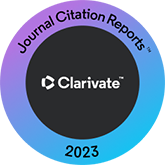Quṭb al-dīn al-Qasṭallānī y sus dos epístolas sobre el hachís
DOI:
https://doi.org/10.3989/alqantara.1997.v18.i1.517Abstract
The Kitāb Takrīm al-ma‛īsha bi-taḥrīm al-ḥashīsha and the Kitāb Tatmīm al-Takrīm li-mā fi l-ḥashīsh min al-taḥrīm by Quṭb al-dīn al-Qasṭallānī occupy a prominent place in the Arabic literature scene on drugs in general and on hashish in particular. Its relevance is due to the fact that most of the Arab authors of subsequent centuries made use of these two epistles in drafting their treatises. That is why al-Qasṭallānī is the most frequently quoted authority in the aforementioned treatises. A close look at both epistles reveals a considerable amount of historiographic unknown data to date on Arabic writing devoted to hashish and prompts us to question other generally accepted data. Futhermore, the characterisation of al-Qasṭallānī's historic personality perfectly illustrates the arrangement of orthodox sufi stratum who were the most important defenders of the ideological fight against hashish consumption during the 13th century. At the same time, the study of the contents of their epistles offers us a clear image of the general ideological context in which the controversy among those Sufis who were against and those who were for the ritual consumption for hashish took place.
Downloads
Downloads
Published
How to Cite
Issue
Section
License
Copyright (c) 2019 Consejo Superior de Investigaciones Científicas (CSIC)

This work is licensed under a Creative Commons Attribution 4.0 International License.
© CSIC. Manuscripts published in both the print and online versions of this journal are the property of the Consejo Superior de Investigaciones Científicas, and quoting this source is a requirement for any partial or full reproduction.
All contents of this electronic edition, except where otherwise noted, are distributed under a Creative Commons Attribution 4.0 International (CC BY 4.0) licence. You may read the basic information and the legal text of the licence. The indication of the CC BY 4.0 licence must be expressly stated in this way when necessary.
Self-archiving in repositories, personal webpages or similar, of any version other than the final version of the work produced by the publisher, is not allowed.














